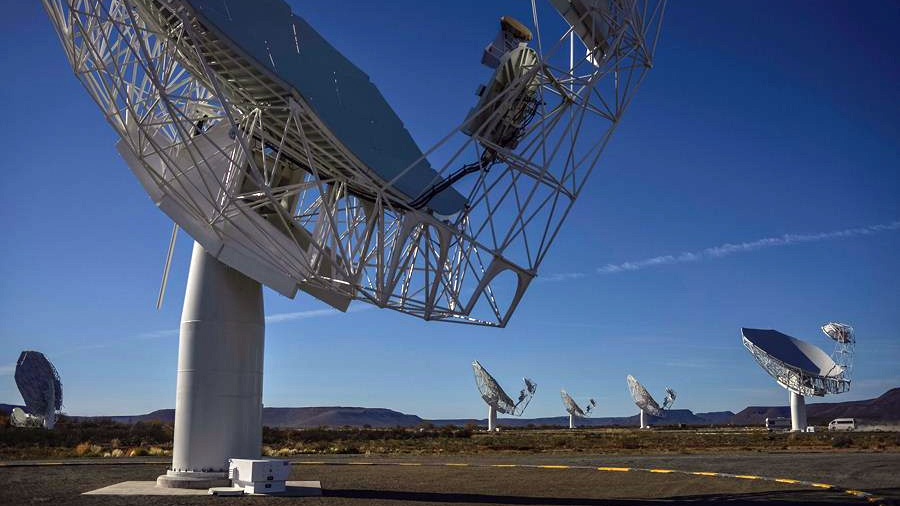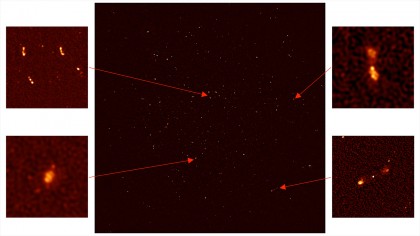The world's best radio telescope just revealed hundreds of new galaxies
Where we could previously only see 70

The first image from South Africa's newest radio telescope shows 1,300 galaxies in a small corner of the Universe where we previously only knew of 70.
But it's just the first step in a massive project that'll let us see things in space that we've never seen before.
Radio telescopes don't look like the image of a telescope that you probably have in your head, of a glass-rimmed cylinder poking out of a dome on top of a mountain.
Instead, they consist of a bunch of satellite dishes, usually positioned in the desert where clear, dry air is common.
This new installation, named MeerKAT, consists of 16 of those dishes close to the town of Carnarvon in South Africa, about 600km north of Cape Town. It'll be expanded to 64 dishes next year, resulting in the ability to see even finer detail in the night sky.
Better than we could have expected
Already, though, it's the best radio telescope in the southern hemisphere. According to Fernando Camilo, its chief scientist, it's producing images " far better than we could have expected".

But this is just the beginning. In the next decade or so, the finished MeerKAT will become part of the Square Kilometre Array - a huge multi-continental radio telescope, featuring 3,000 dishes covering a collective area of a square kilometre. It'll be headquartered in Britain.
Sign up for breaking news, reviews, opinion, top tech deals, and more.
When that comes online, everything will change - it will have a discovery potential 10,000 times greater than the most advanced instruments today, letting us see parts of the Universe that we've never even dreamed of.
A first for Africa
South African Minister of Science and Technology Naledi Pandor told AFP that "this the first time that an African group of countries will host global science infrastructure of this character."
He added: "It's a first for us as Africa and also it's a first for the world because the world hasn't done this in Africa," said the Minister. "We are building a global infrastructure for the world."
- Duncan Geere is TechRadar's science writer. Every day he finds the most interesting science news and explains why you should care. You can read more of his stories here, and you can find him on Twitter under the handle @duncangeere.
